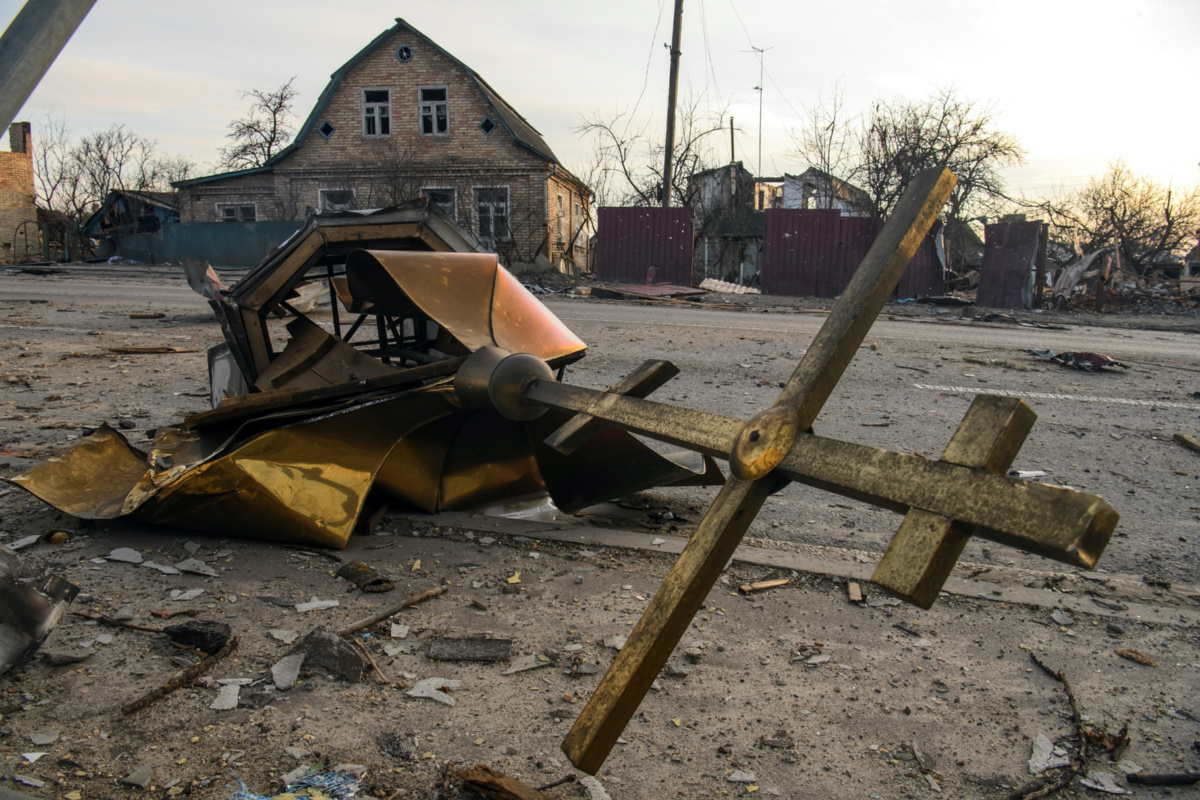
JONATHAN FOYE reports on differing perspectives on how theologians view the idea of non-violence in the context of the conflict raging in Ukraine…
Sydney, Australia
In late February, Russian President Vladimir Putin ended a long period of brinksmanship and invaded Ukraine. Under the justification of wanting to remove “Nazis” from the country, Putin sent troops, tanks, and warships across the border. International condemnation was swift, with responses including economic sanctions, taxes on the import of Russian goods, and a broader marginalisation of Russia.
Since the invasion, people in Ukraine have been in a protracted battle for their lives, defending their homes. Stories of bravery against the well-trained and well-armed opposition have flooded social media. A huge international effort to arm Ukrainians to defend themselves has been underway since shortly after the invasion started. As Australian Prime Minister Scott Morrison told Ukranian President Volodymyr Zelenskiy from the House of Representatives: “Yes, you have our prayers, but you also have our weapons, our humanitarian aid, our sanctions against those who seek to deny your freedom. And you even have our coal.”

A cross and a destroyed dome of a local church damaged by shelling are seen on a road, as Russia’s attack on Ukraine continues, in the settlement of Hostomel, outside Kyiv, Ukraine on 6th April. PICTURE: Reuters/Vladyslav Musiienko .
The Russian invasion of Ukraine – which has faced near-universal condemnation from the church globally including from sections of the Russian Orthodox Church – has seen Ukrainians of all ages and backgrounds take up arms to defend the country.
For many Christian traditions, Jesus’ words in the Sermon on the Mount against resisting an evildoer prohibit violence. Yet, while traditions including Mennonites and Anabaptists are committed to non-violence and coming up with creative strategies to solve conflicts, other views are not so black-and-white.

Rev Dr John Squires. PICTURE: Supplied.
“The bottom line, for me, is that war is never a winning strategy. There are no winners in warfare. Everyone loses. War causes such pain, such turmoil, such hurt, such dislocation.”
– Rev Dr John Squires is a Uniting Church-trained theologian.
Rev Dr John Squires is a Sydney-based Uniting Church-trained theologian and editor of the With Love to the World reflections series. He tells Sight that non-violence was crucial, but arguably too late in the case of the Ukranian conflict.
“The bottom line, for me, is that war is never a winning strategy,” Squires says.“There are no winners in warfare. Everyone loses. War causes such pain, such turmoil, such hurt, such dislocation.”
Squires notes that there are sophisticated arguments supporting armed resistsnace and that ‘Just War theory’ – a set of propositions that suggest warfare can be considered the most moral response to certain situations, “could presumably be used to support a Western pushback to the current Russian invasion”.
“Fighting evil is seen as essential,” he says. “War is reckoned as the way to do this.”
Squires notes, however, that war has further consequences.
“It damages individuals, communities, societies, and nations,” he says. “It has many more innocent victims than the casualty lists of enrolled personnel indicate. And there is abundant evidence that one war might resolve one issue, but often will cause other complications which will lead to another war. We can look at the outcome of the Armistice at the end of World War I – we can trace a direct sequence of events that led from World War I to World War II.”
Yet, Squires says, sometimes “pitched battle warfare seems to be the only possible way forward”.
“In the current situation, resisting the Russian invasion seems to be a vital strategy, especially as we see the pictures beamed from [Ukraine of] buildings reduced to rubble, lines of homeless people seeking to find refuge, hospitals that have been bombed but are seeking to continue to operate under difficulties. These pictures pull at our heartstrings, and validate our support for a direct Western response to Russian aggression. A non-violent response seems harsh, uncaring, selfish, and irrelevant.”
Overall, Squires says a commitment to peace “is surely what we need to foster”.
“An aversion to war is what we need to develop. As a follower of the Man from Nazareth who advocated turning the other cheek, praying for those who abuse you, and loving the enemy – the Man who blessed those who work for peace – it would seem that a non-violent response is essential. And that is the ultimate goal.”
That means aspiring to create “a culture of respectful disagreement and honest negotiation, rather than pitched rhetoric and savage violence”.
“However, that can’t suddenly be brought to bear in the current situation. I think the imperative to respond ‘in kind’ is too strong to ignore. The justification for an aggressive western response is strong,” he adds.
“But over time, our leaders need to foster a much more constructive sense of relating in positive ways through diplomacy that is nurtured over time – rather than public posturing and media-oriented sound bites. That takes hard work and persistent commitment. Instead of rattling the sabres to grow in popularity during the current battle, why not commit to the requisite military response, but seek to develop robust ways of developing respectful and mutually-constructive ways of operating.
“So, my answer is: short term, no; long term, yes.”
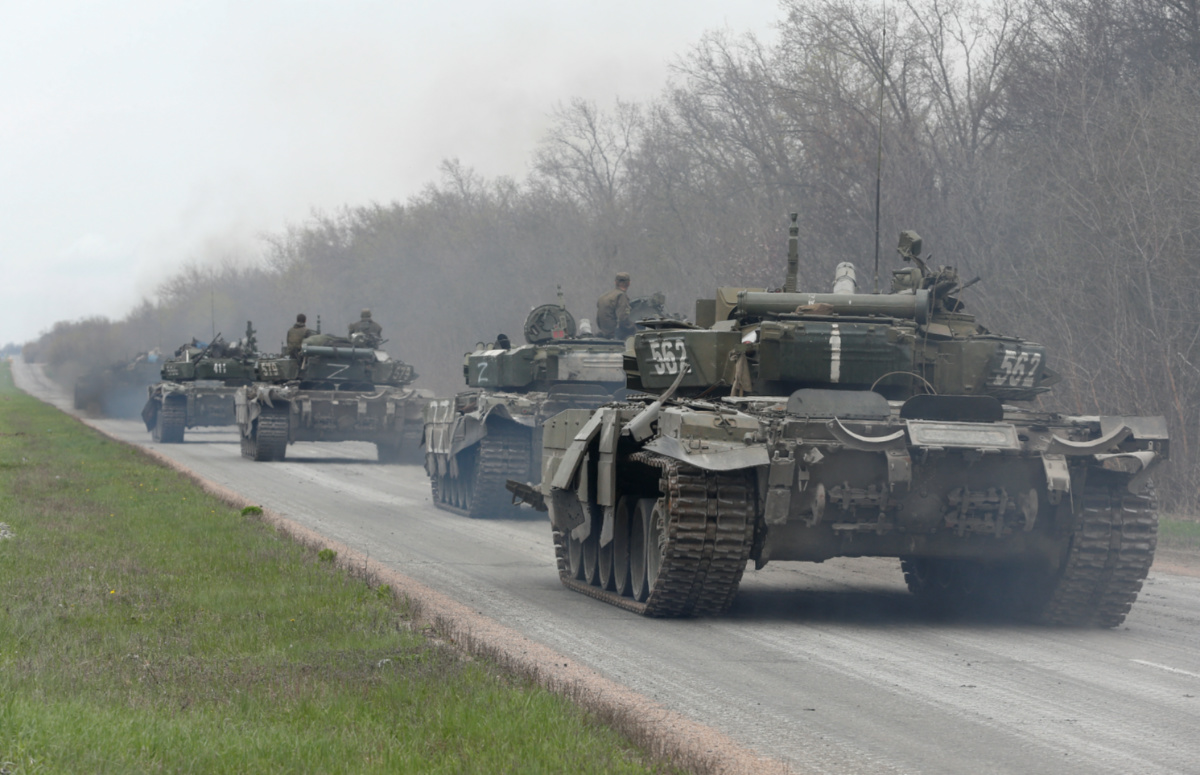
Tanks of pro-Russian troops drive along a road during Ukraine-Russia conflict near the southern port city of Mariupol, Ukraine, on 17th April. PICTURE: Reuters/Alexander Ermochenko
Catholic theologians, meanwhile, have been universal in condemning the Russian invasion including among those who support just war theory and pacifist thinkers. Yet, as Sight previously reported, there has been some debate amongst Catholic thinkers over the Ukrainian people’s use of force in their response.
While Eli S McCarthy, a peace activist at Georgetown University’s Justice and Peace Studies in the US, believes that a violent response will make matters worse, telling Religion News Service that “we have failed to adequately train people in non-violent conflict, resistance and civilian-based defence”, Villanova University ethicist Gerald Beyer argues that military resistance has to be a part of a mix of tactics.
“If Russia achieves its aims – and I believe it will without military resistance along with other measures – an entire nation will disappear from the heart of Europe [once again].”
We rely on our readers to fund Sight's work - become a financial supporter today!
For more information, head to our Subscriber's page.
According to one Canadian theologian from a Mennonite background, questions about the efficacy of non-violence are framed in an unfair way.
Karen Ridd, who teaches conflict resolution studies at Menno Simons College in Winnipeg, says – in an article published in the Winnipeg Free Press back in March – that the response to conflicts such as that unfolding in the Ukraine was so often to suggest that, “peacemaking doesn’t work”.
“The critique always turns on peacemaking, not war making,” she says. “That is sad and telling.”
The response from Ukrainian people, she says, did not need to be an either peace or war, and that a combination of responses was being exhibited.
Another Mennonite theologian quoted in the same article – Wendy Kroeker, who teaches peace and conflict transformation studies at Canadian Mennonite University, the mixture of tactics seen being undertaken by the Ukranian people early in the conflict demonstrated that non-violent resistance could work.
Kroeker says that one source of inspiration for Canadian peace-makers was the presence and work of Ukrainians who used non-violent resistance. This, she says, includes civilians holding demonstrations and protests against the occupation. Another source of inspiration are the thousands of Russians who have bravely protested the invasion and have risked imprisonment to do so.
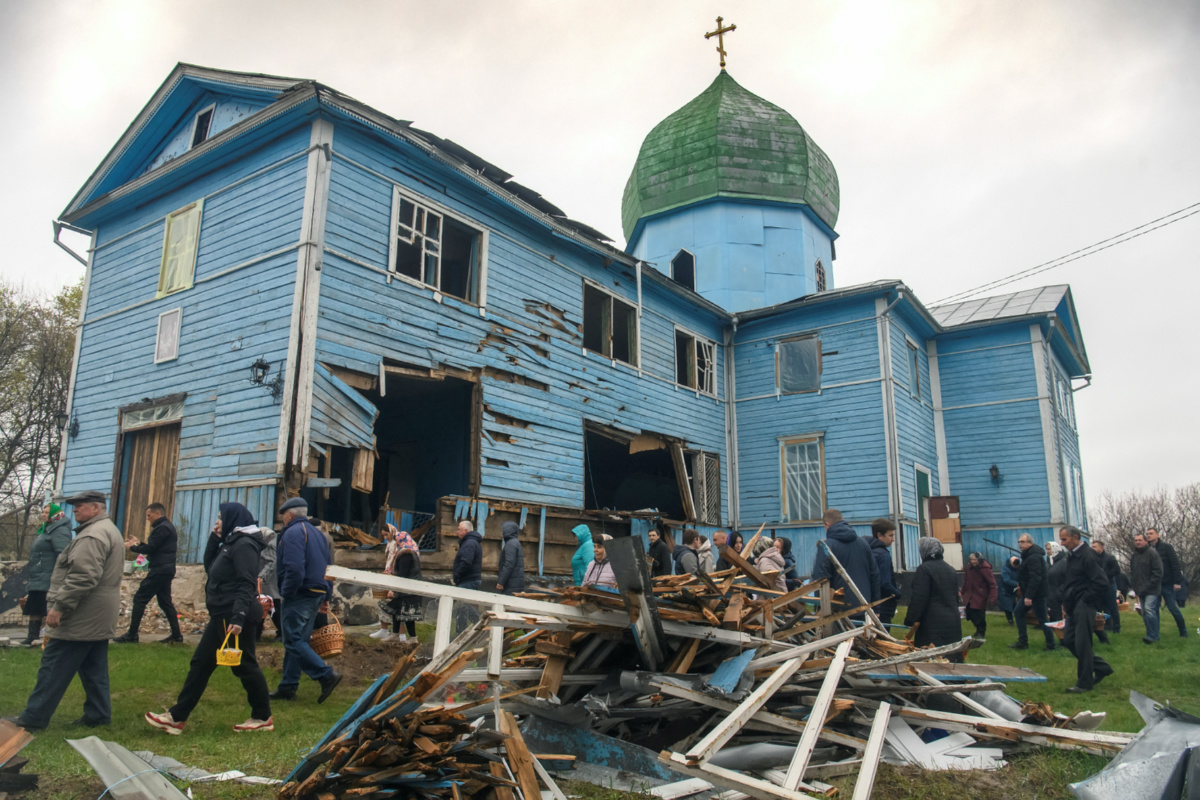
Local residents walk after the Orthodox Easter service next to The Nativity of the Holy Virgin Church damaged by shelling during Russia?s invasion in the village of Peremoha, in Kyiv region, Ukraine, on 24th April. PICTURE: Reuters/Vladyslav Musiienko.
Whether or not those outside the conflict can proscribe pacificism as a response has been a sticking point for some theologians.
Rev Liam Miller, a Uniting Church minister and a PhD candidate at United Theological College in Sydney, addresses the subject of non-violence in the context of marginalised groups in a paper called Is it Ok to punch a Nazi?
Miller tells Sight that the rhetoric behind such a debate was often framed by people in a position of power and comfort, rather than those affected by war.
“One of the chief problems with the way non-violence is discussed (or worse, the way non-violence is demanded) is that it is done by those who have a choice,” Miller says. “It is usually those who hold institutional power, who benefit from structural and societal privilege who look at those without such support and demand that they exercise non-violence in their struggle to combat the often invisible violence those institutions and structures yield.”
Miller says that what “tends to get ignored in these conversations is the way much of what is labelled violence is really counter-violence”.
“The problem is, the initiating violence has existed so long, in so many forms, that it is just assumed, it is normalised, and so it is no longer considered violence. Thus the response, which interrupts the status quo, which is remarkable, is labelled as a violent act (and often labelled as unprovoked or unreasonable). A Ukrainian act of violence, in the current situation, is really no longer violence (in the common way of using that term) it is resistance, rebellion, survival.”
According to Miller, communities such as those in Ukraine need to be empowered to be able to respond out of non-violence.
“There are almost always other ways, but the availability of these ways diminish as the resources, power, and voice of the community diminishes,” he says. ”And so if we wish for an individual, community or nation to attempt to respond non-violently, all efforts must be made to equip them with resources, structural power, freedom and security in order to pursue those. If that is not available, if what is needed to make a creative non-violent response possible is out of reach, then we do not have any right to take violence off the table, otherwise, what remains?”
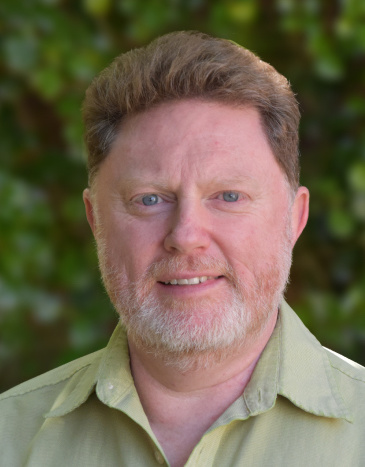
Rev Dr Garry Deverell. PICTURE: Supplied.
Rev Dr Garry Deverell – an Anglican priest and lecturer and research fellow in the new School of Indigenous Studies at the Melbourne-based University of Divinity – argues along similar lines. He tells Sight that, in the context of an invasion, pacifism was not something he would commend.
“In this world we are dealing not with the ultimate and the perfect but with the penultimate and the imperfect,” Deverell says. “Whilst a more robust form of pacifism might suffice in the face of lesser forms of violence – refusing to fight in a morally ambiguous war in another part of the world, for example, pacifism of this kind does not seem sufficient when one’s own land, livelihood and the very lives of one’s loved ones are under threat.”
Deverell notes that both the Jewish and Christian traditions put severe limits upon the taking of human life.
“‘Thou shalt not kill’, whilst not an absolute command which applies in any and all circumstances, nevertheless inscribes a serious duty to do everything possible to avoid the taking of human life,” he says.
“What this means, I think, when it comes to the theatre of war between human nations, is simply this: that one should avoid policies and practices that are likely to lead to war. One should never be the aggressor or the provocateur. One should never be the one who creates the conditions – whether these be political, economic or environmental – in which war becomes the most likely outcome. We should do everything we can to avoid starting wars.”
But there are, he adds, circumstances in which war “becomes inevitable”.
“Having done all that is rationally and morally possible to avoid conflict with an aggressor, sometimes one simply has to take up arms in order to defend one’s right and responsibility to live and to flourish before the creator is a way that is commensurate with the equal distribution of that right and responsibility across the whole biosphere.”
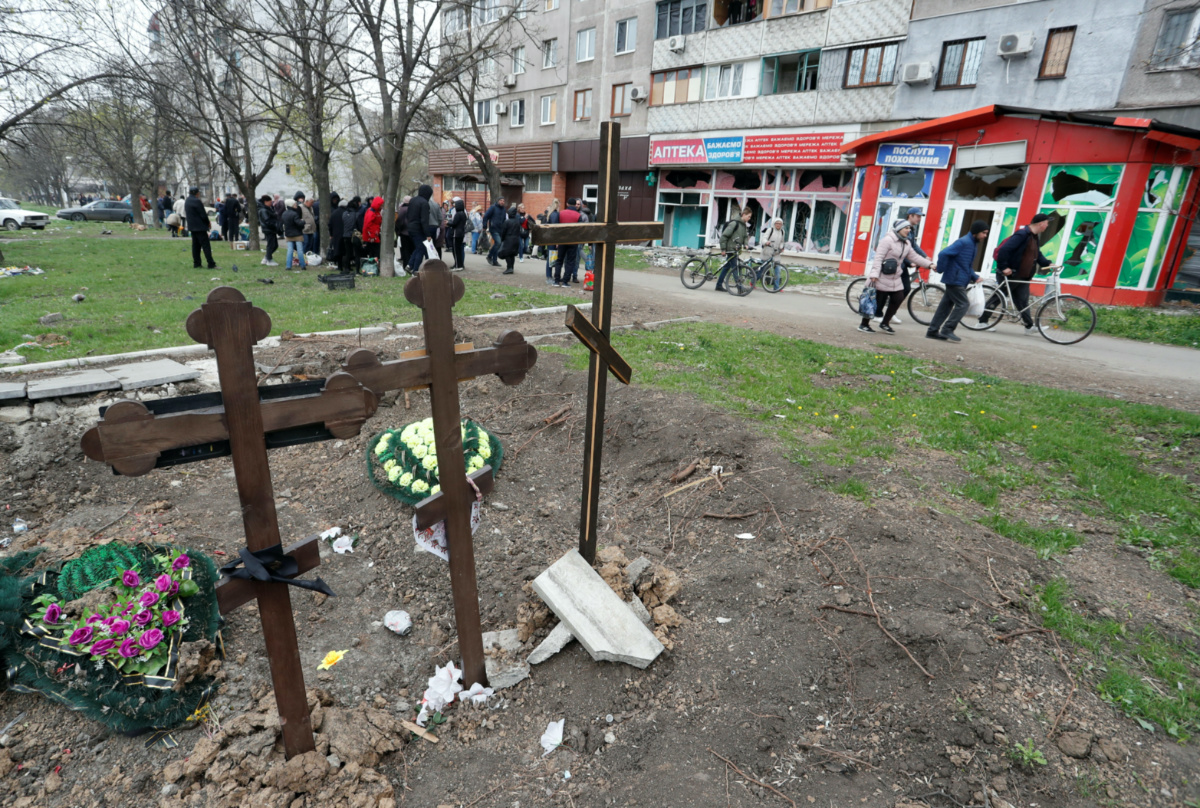
A view shows graves of civilians killed during Ukraine-Russia conflict in the southern port city of Mariupol, Ukraine on 19th April. PICTURE: Reuters/Alexander Ermochenko
As a Christian and a Trawloolway/Pairebeenener man, Deverell draws parallels between the resistance of the Ukranian people and that of Indigenous people during Australia’s frontier wars.
“An example, from the recent history of my own people, is the way we took up weapons to defend our country and our way of life from the British invasion, which took place in ever more disruptive and devastating waves from 1802 until the present,” he says.
“In the face of that invasion – which proceeded on the assumption that Aboriginal people enjoyed no right or responsibility to life and its flourishing – we had no choice. Before our creator-ancestors, and because of their injunction to care for country and for each other, we had to fight. We lost, obviously. But we had to fight.”
“To the extent that the war in Ukraine mirrors what we have experienced ourselves, I would argue that the people of the Ukraine also have to fight. And we who believe in the sacredness of all forms of life, precisely as they are given in creation, must offer whatever forms of solidarity we can.”





